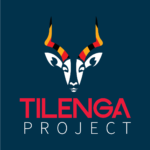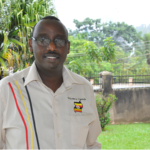The International Organization for Migration (IOM) and partners have formally launched a project to transform management of solar electronic waste in Bidibidi Refugee Settlement situated in Uganda’s northwestern region.
The project, “Greening Humanitarian Responses Through Recovery, Repair, And Recycling of Solar Products in Displacement Settings”, will give new life to disused solar lanterns and their batteries, whilst creating jobs, supporting livelihoods, and providing business opportunities for refugees and host communities. Bidibidi Refugee Settlement is home to an estimated 270,000 refugees, most of whom have fled the violence and insecurity in South Sudan.
Ultimately, the project seeks to enhance environmental sustainability in the settlement by minimizing improper disposal of solar products. It also aims to provide evidence to replicate in other settings, and to scale up beyond solar products and to other types of e-waste.
The partnership will sensitize communities on proper electronic waste disposal and provide solar repair services.
“Through the innovative approaches focusing on repurposing usable components from broken solar products, this project is greatly going to contribute to reducing e-waste in Bidibidi,” Savage said. “The lessons from this pilot are going to influence future interventions that will focus more on the environmental sustainability of solar items,” Said Sanusi Tejan Savage, IOM Chief of Mission in Uganda.
Solar products and services have been/and are increasingly provided to refugees as part of efforts to supply them with clean energy through portable and low-cost solutions. Electronic waste causes air and water pollution, environmental degradation through hazardous metals and other elements, as well as causing problems to human health, whilst missing untapped economic opportunities for effective management.
The establishment of collection and repair centres will not only ease access to repair services, but also create jobs. BRIGHT and TEOSS will train seven technicians in testing, repair, and assembly of lithium-ion batteries.
TEOSS will also install a “Batlab”, a solarized mobile container built upon Aceleron’s patented technology. Here, lithium batteries from unrepairable solar products will be reassembled into battery packs for powering homes, businesses, or other facilities.
Peter Batali, the CTEN Executive director, noted that many homes in Bidibidi rely on solar yet they don’t have repair services. Instead, he said, some people resort to using some of the components like batteries to charge their phone batteries and others keep them under their beds which puts their health at risk because the products contain hazardous minerals like cobalt, lithium, and manganese. He said an important aspect of the intervention will be to educate communities about the dangers of poor disposal of solar products.
To improve sustainable procurement of solar products, Solvoz will conduct research focusing on the solar e-waste value chain. Through workshops with key stakeholders from the government, humanitarian agencies, and the private sector, Solvoz and IOM will share their experiences that will help green humanitarian procurement policies and solutions to the solar e-waste challenge.
The first phase of the project, conducted in 2020, included a needs assessment that analyzed e-waste management conditions in five refugee settlements and camps in Uganda and Kenya, as well as a market dialogue with the private sector, helping to shape the approaches for the pilot phase in Bidibidi.
The project is funded by Innovation Norway and is being delivered by IOM in partnership with BRIGHT Products, Solvoz, Total Energies Offgrid Solar Solutions (TEOSS). Locally, it is being co-implemented with the Community Technology Empowerment Network (CTEN). IOM received 5,300,000 NOK (about EUR 554,600) to finance the costs of the project in different locations, including private sector engagement, innovation and operations.








